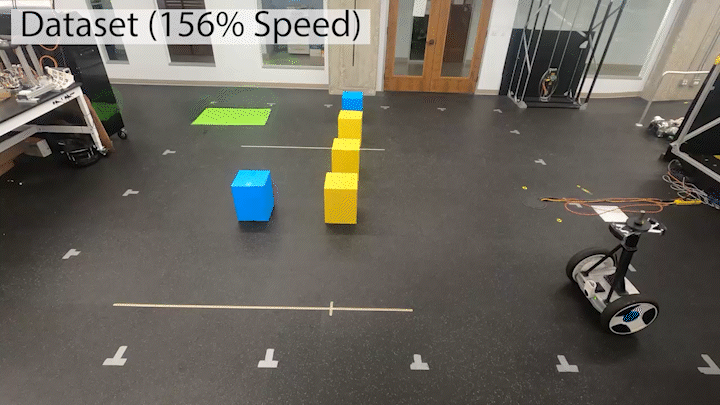Learning to Control an Unstable System with One Minute of Data: Leveraging Gaussian Process Differentiation in Predictive Control
abstract– We present a straightforward and efficient way to control unstable robotic systems using an estimated dynamics model. Specifically, we show how to exploit the differentiability of Gaussian Processes to create a state-dependent linearized approximation of the true continuous dynamics that can be integrated with model predictive control. Our approach is compatible with most Gaussian process approaches for system identification, and can learn an accurate model using modest amounts of training data. We validate our approach by learning the dynamics of an unstable system such as a segway with a 7-D state space and 2-D input space (using only one minute of data), and we show that the resulting controller is robust to unmodelled dynamics and disturbances, while state-of-the-art control methods based on nominal models can fail under small perturbations.

Figure 1: “Stabilizing a segway with an unmodelled weight against a force disturbance. On the left, our method is able to stabilize using a dully learned dynamics model that uses only 100 data points collected from one minute of data. On the right a state-of-the-art model predictive control policy using the nominal dynamics is unable to stabilize.”
| Simulation Results | Training Dataset |
|---|---|
 |
 |